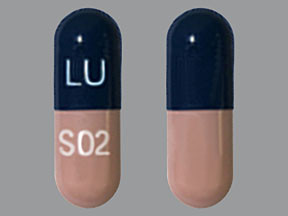VANCOMYCIN - ORAL
PHONETIC PRONUNCIATION: (VAN-koe-MYE-sin)
COMMON BRAND NAME(S): Vancocin
GENERIC NAME(S): vancomycin HCl
Uses
USES: Vancomycin is used to treat a certain intestinal condition (colitis) that may rarely happen after treatment with antibiotics. This condition causes diarrhea and stomach/abdominal discomfort or pain. When vancomycin is taken by mouth, it stays in the intestines to stop the growth of bacteria that cause these symptoms. This antibiotic treats only bacterial infection in the intestines. It will not work for bacterial infections in any other part of the body or for viral infections (such as common cold, flu). Using any antibiotic when it is not needed can cause it to not work for future infections.
How to use VANCOMYCIN - ORAL
HOW TO USE: Take this medication by mouth as directed by your doctor, usually every 6 to 8 hours. The dosage is based on your medical condition and response to treatment. In children, the dosage is also based on weight. If you are also taking certain bile acid-binding cholesterol medication (such as cholestyramine, colestipol), take it at least 3 to 4 hours after taking vancomycin. Taking them together will make vancomycin work less well. Ask your pharmacist if you have questions. For the best effect, take this antibiotic at evenly spaced times. To help you remember, take this medication at the same times every day. Continue to take this medication until the full prescribed amount is finished, even if symptoms disappear after a few days. Stopping the medication too early may result in a return of the infection. Tell your doctor if your condition lasts or gets worse.
Side Effects
Precautions
Interactions
Overdose
Images

- color
- lavender
- shape
- oblong
- imprint
- LU, S02

- color
- lavender
- shape
- oblong
- imprint
- LU, S02
Reviews
Faq for VANCOMYCIN - ORAL
Vancomycin oral is used to treat bacterial infections in the intestines, including Clostridium difficile-associated diarrhea.
Vancomycin oral works by stopping the growth and spread of bacteria in the intestines, thereby treating the infection.
Common side effects of Vancomycin oral include nausea, vomiting, stomach pain, headache, and dizziness. Less common side effects may include allergic reactions, hearing loss, and kidney problems.
Vancomycin oral should be taken exactly as prescribed by your healthcare provider. It is usually taken several times a day with or without food. It is important to complete the full course of treatment, even if you start feeling better.
Vancomycin oral can be used in children, but the dosage and duration may vary depending on their age and weight. It is important to consult a healthcare provider for appropriate dosing instructions.
It is generally recommended to avoid alcohol while taking Vancomycin oral, as it may increase the risk of certain side effects such as liver damage and dizziness.
Vancomycin oral is usually considered safe to use during pregnancy and breastfeeding. However, it is important to consult a healthcare provider for individualized advice, as the benefits and risks may vary.
Vancomycin oral may interact with certain medications, such as other antibiotics, anticoagulants, and medications that affect the kidneys. It is important to inform your healthcare provider about all the medications you are taking to avoid potential interactions.
No, it is important to complete the full course of Vancomycin oral treatment, even if your symptoms improve. Stopping the medication prematurely may lead to the return of the infection or the development of antibiotic resistance.
Disclaimer
IMPORTANT: HOW TO USE THIS INFORMATION: This is a summary and does NOT have all possible information about this product. This information does not assure that this product is safe, effective, or appropriate for you. This information is not individual medical advice and does not substitute for the advice of your health care professional. Always ask your health care professional for complete information about this product and your specific health needs.
No Reviews Yet